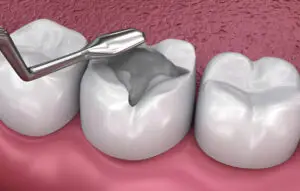Are you considering dental implants but worried about the pain? It’s a common concern for many people. In this guide, we will look at dental implants and answer the question: Do they hurt? After reading this article, you will know what to expect and how to handle any discomfort.
Understanding Dental Implants
Let’s start by understanding what Dental Implants are and how they work. Dental implants are a remarkable solution for replacing missing teeth. They are designed to look, feel, and function just like natural teeth. But how do they achieve this, and is there any pain involved?
The Dental Implant Process
Dental implant surgery involves several key steps:
Initial Consultation: Start your dental journey with a consultation. A dentist will check your teeth and gums and discuss the treatment plan with you.
Implant Placement: The implant is made of titanium and put into your jawbone through surgery. But here’s the good news – during this procedure, you won’t feel any pain. Local anesthesia ensures a pain-free experience.
Osseointegration: This is a crucial phase where the implant fuses with your jawbone. It’s essential for the stability of your new tooth. While this phase can take some time, it’s not painful.
Abutment Placement: Once osseointegration is complete, an abutment is attached to the implant. This is the connector that holds your replacement tooth or crown. Again, no pain during this step.
Crown Placement: Your custom-made crown is placed on the abutment to finish your new tooth. While you may feel slight discomfort, it’s manageable with post-surgery care.
Pain Management During Implant Surgery
Dental implant surgery is almost painless when it is done, which is reassuring. Thanks to local anesthesia, you won’t feel a thing while the implant is being placed. Any pressure or discomfort is minimal and manageable.
Managing Discomfort After Surgery
You may feel uncomfortable after the implant surgery as the anesthesia wears off. However, there are effective ways to manage this discomfort:
- Prescribed Medications: Your dentist may give you medicine to help with any pain after your surgery.
- Over-the-counter Options: In many cases, over-the-counter pain relievers are sufficient to alleviate discomfort.
- Home Remedies: Applying an ice pack, rinsing with warm salt water, and sticking to a soft diet can help minimize discomfort.
Comparing Dental Implants to Alternatives
To understand dental implant pain, let’s compare them to other options like bridges or dentures.
- Durability: Dental implants are a long-term solution, offering durability that can last for decades.
- Functionality: Dental implants act just like real teeth, so you can eat, talk, and smile with confidence.
- Bone Health: Implants help maintain jawbone health, preventing bone loss, which can occur with missing teeth.
Real Patient Experiences
When you hear from people who had dental implant surgery, you can learn what to expect. Many patients say the discomfort during the process is manageable. They share their experiences. Their stories offer reassurance and relatable experiences for those considering implants.
Emphasizing Aftercare and Healing
The road to a beautifully restored smile continues with proper aftercare and healing:
- Swelling and Discomfort: Expect minor swelling and discomfort for the first few days, which is entirely normal.
- Healing Time: Most patients recover within ten days, although individual factors play a role.
- Mitigating Risks: To reduce the chance of getting sick, do what your dentist says and keep your mouth clean.
Conclusion
Getting dental implants may cause discomfort, but it’s a valuable solution for improving your smile. The temporary discomfort should not deter you from the long-term benefits of dental implants. Your smile can be restored smoothly and with little pain by managing pain and following aftercare.
For more information click here….






